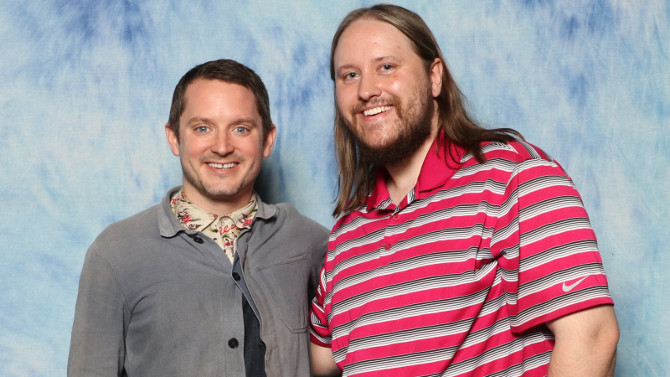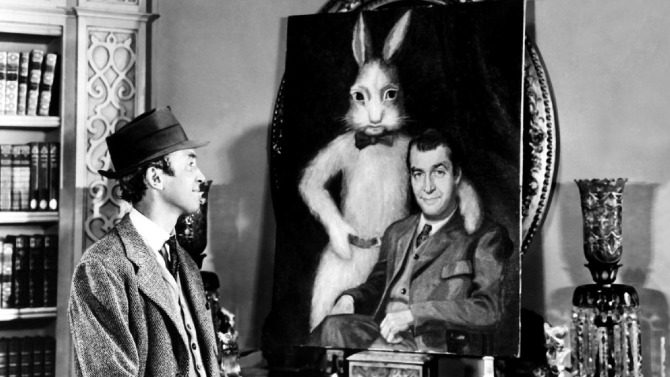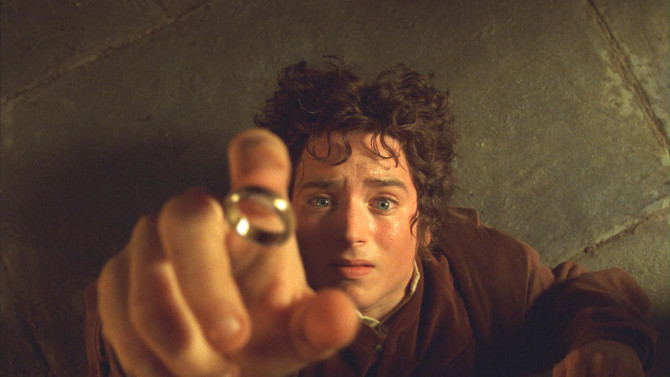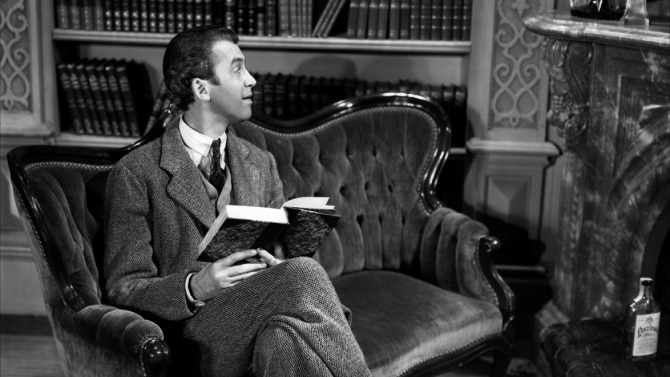How else can you start talking about Elijah Wood than referencing The Lord of the Rings – arguably one of, if not the best trilogy ever produced. Playing the lead character Frodo, he is the seminal everyman, or should I say everyhobbit, a down to Middle-Earth, caring individual with a larger than life spirit who takes on the task of transporting the most vile weapon of all-time, the one ring, into the heart of darkness to destroy evil for once and all. It is a performance of pathos, gravitas, and exquisite depth.
Yet, one cannot forget Wood’s illustrious career. . . starting as a child actor, he graced the silver screen in pictures like Back to the Future Part II (a small part and his first film role), Avalon, The Good Son, only to further bolster his credits as a teenager with Flipper, The Ice Storm, and Deep Impact. Following the release of the above mentioned trilogy (2001-2003), Wood followed it up with solid turns in critically acclaimed features such as Eternal Sunshine of the Spotless Mind, Sin City, Paris, je t’aime, as well as voicing characters in the animated movies Happy Feet and 9. It must not be forgotten that he reprises his role as Frodo Baggins in the Rings prequel, The Hobbit: An Unexpected Journey.
Lately, he has also been heavily involved on the production side, helping usher in a new era for the horror/thriller genres. . . with an interesting eye, here are just a few examples – 2014’s Open Windows and Cooties (both of which he starred in), 2018’s Mandy, 2019’s Daniel Isn’t Real, while he has three other features in pre or post production.
A busy man, Wood (who also has his own record label, Simian Records) was gracious enough to take the time to answer one of my most preferred questions, ‘what is one of your favourite films?’. Immediately stating his choice, the actor highlighted the classic 1950 motion picture Harvey. When asked why, his answer was twofold: firstly, he was enamoured with the film’s multi-layered story (fascinating in that it could be interpreted in numerous ways, he called it beautifully written), while his second reason was the wonderful performance from Jimmy Stewart – citing his love for the actor, his rich performance (that perfectly straddles both comedy and drama), and his overall aura that only adds to the picture.
If a stage play is to be successful, it needs to rely on the strength of two very important aspects – its actors and sharp dialogue. The one thing that I have come to notice when watching an adaptation of a play is that the dialogue that transitions over to the big screen is almost always beautifully written, unbelievably witty and surprisingly eloquent. There is perhaps no better example of this than Harvey. Mary Chase adapts her own Pulitzer Prize winning play (with some help from Oscar Brodley), bringing with her Jimmy Stewart and Josephine Hull, two actors who had already tackled the material on the stage.
Stewart plays Elwood P. Dowd, a kindly and charming gentleman who comes from a well-to-do family. He has a lovely demeanor, but is thought to drink too much (he does spend most of his days frequenting bars) . . . and also just happens to be friends with an invisible, six foot three and a half inch tall rabbit named Harvey. Hull takes on the role of his disgruntled older sister Veta Louise Simmons, who is fed up with her eccentric and seemingly delusional younger brother. Scaring most people off with his imaginary friend, she has been unable to help her daughter, Myrtle Mae (Victoria Home), procure a reasonable suitor, nor have they been able to thrive in their proper place in society.
With both of the women being at their wits’ end, they see no alternative but to send the unintentionally troublesome man to a sanatorium. Comedy ensues as the medical team, including psychiatrist Dr. Lyman Sanderson (Charles Drake) and nurse Ruth Kelly (Peggy Dow), misconstrue the situation and believe that Veta Louise is actually the mentally ill person (after she talks about believing in the giant rabbit). Thinking they’ve inadvertently placed a sane man in the institute for a brief time, they pander to and pamper the man before releasing him (fearing a lawsuit) – but not before he invites both Sanderson and Kelly to meet him for a drink at his favourite bar at 10 o’clock.
Eventually, the mistake is realized and Sanderson has to apprise the normally reclusive head doctor, Chumley (Cecil Kellaway), of his egregious error. The senior physician heads out to search for Dowd, eventually finding him in the bar. The scientific man starts to see the rabbit (also known as a Pooka – a Celtic mythological creature who chums around with outcasts), calling into question the supposed insanity of our protagonist. Meanwhile, Myrtle Mae starts to fall for the first man she sees, the gruff (and rather rough) orderly Marvin Wilson (Jesse White). Will Dowd be able to convince his doctors of his sanity, or will he be unceremoniously placed in the loony bin?
With the brilliant skill of coining a clever phrase, Mary Chase litters her screenplay with a wonderful concoction of memorable lines. Finding all that is positive, kind and right in human beings, Chase passes along life lessons like the one Dowd recites (reiterating a phrase uttered by his mother) – “‘In this world, Elwood, you can be oh so smart, or oh so pleasant’. Well, for years I was smart. . . I recommend pleasant.” Stewart is simply brilliant playing the soft spoken, gentle soul. Caring for every human being as well as his invisible friend, we truly believe him when he responds to a postal service worker who has just referenced the beautiful day, adding: “Oh, every day is a beautiful day.” The surrounding character actors are all on their game as well, but I must place the spotlight on the over the top Josephine Hull – whose turn as the exasperated socialite is comically exaggerated. It won her an Academy Award for Best Supporting Actress.
Also highlighting the wonderful idea of being yourself, the film relishes this concept – advising its viewers that to sway from this course will change you and your true demeanor. It is perhaps a lesson for all of us as we wear masks depending on the situation we are in and the people we are surrounded by.
Harvey is a charming little film with heart. Though it may drag in a few spots and could seem a bit sappy to some, it is the type of motion picture that calms and soothes the soul. Centred on the masterful performance by Stewart, it is definitely worth a watch. “Now, let’s stick to the facts”, this is an insanely entertaining movie that will bring a pleasant smile to your face.





Orson Welles once said that in order to become a star, an actor must have a face that lends itself to caricature.